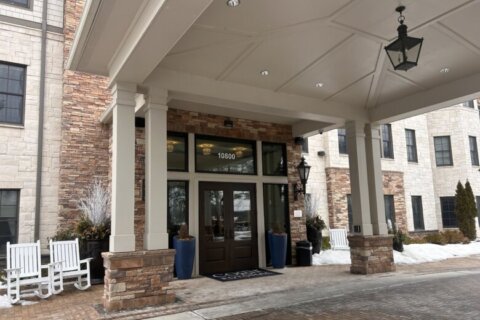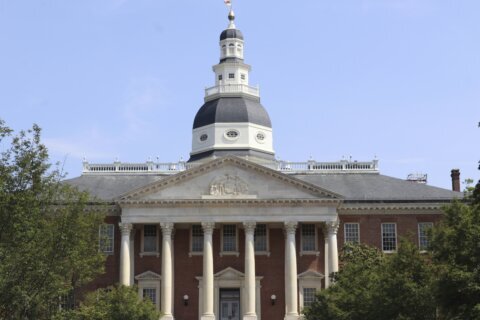The plan was to have 675,000 gallons of contaminated wastewater on its way to Maryland from East Palestine, Ohio, by Thursday.
But that plan came to a screeching halt Tuesday after Maryland state and congressional lawmakers objected and Baltimore City Mayor Brandon Scott moved to block the shipment.
On Tuesday, Clean Harbors, the company handling contaminated runoff and wastewater from the site of the Norfolk Southern train derailment in Ohio last month, issued a statement saying it was no longer planning to ship the wastewater to Baltimore for eventual treatment at the Back River Wastewater Treatment Plant in Dundalk.
The Back River treatment facility, owned and operated by Baltimore City, has had a troubled history — the latest episode related to an explosion on the site less than two weeks ago.
Doug Myers, a senior scientist with the Chesapeake Bay Foundation, told WTOP that it was surprising that the Back River plant would be considered for handling any of the wastewater from Ohio.
“We just had a plant explosion at Back River, and 70% of the biosolids handling capacity was erased in one day,” Myers said, adding that the perception of having the treatment plant handle the contaminated water right after the explosion at the facility was “ridiculous.”
Scott moved to have officials modify the permit, effectively blocking Clean Harbor’s ability to ship the toxic waste to the city. But it’s not just a Baltimore City issue.
“It is a national issue when you have a toxic spill,” Myers said. But the runoff, he added, has to go somewhere, and “It affects communities no matter where it goes.”
The problems at the Back River facility, including staffing and maintenance issues, have been watched closely by environmentalists concerned about the health of the Chesapeake Bay for years.
“We rely on the Back River Wastewater Treatment Plant, as the biggest one in the state, to meet our bay cleanup goals,” Myers said.
Baltimore and Maryland officials aren’t the only ones to push back on the prospect of having wastewater from the derailment site sent to their communities. The Environmental Protection Agency has been overseeing the shipments and communities in other states, including Michigan and Texas.
Maryland state lawmakers say their concerns about pollution don’t end with the decision by Clean Harbors not to ship the wastewater from Ohio to Baltimore.
In a news release Tuesday, Baltimore County state delegates Kathy Szeliga and Ryan Nawrocki thanked Baltimore City officials for moving to block the acceptance of the wastewater from Ohio but wrote, “The work isn’t over yet; the delegates are still working with Sen. Mary Washington and other colleagues to pass legislation to take a closer look at this issue.”
The issue is bipartisan: Washington is a Democrat; Szeliga and Nawrocki are Republicans. In Tuesday’s statement, Szeliga said, “No one trusts the aging sanitary sewer lines and the Back River Plant to successfully handle toxic water in a state remotely acceptable to run into the Chesapeake Bay.”
In a statement to WTOP, Washington said, “We have demonstrated that we are not powerless to take a stand against further degrading our waterways and ecosystems. I would like to assure the people of Maryland of my continued interest in this issue — not just in this case but also on wastewater discharge and policy more broadly, and how it impacts our communities.”








